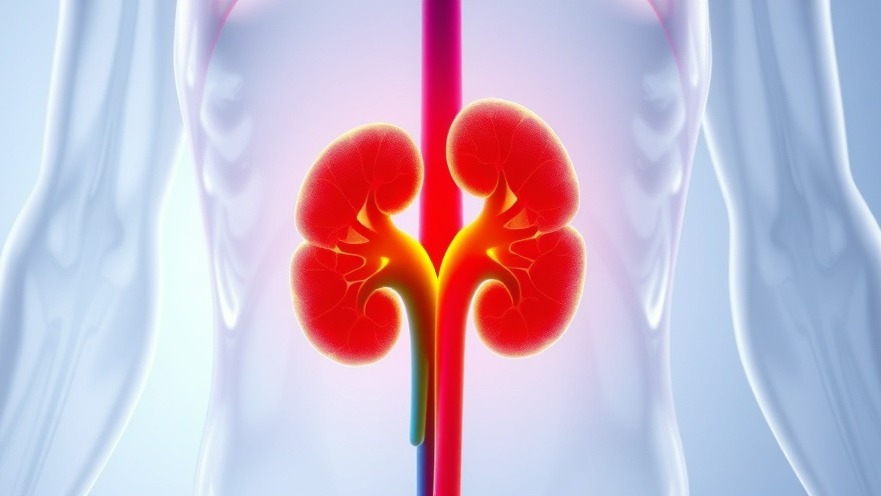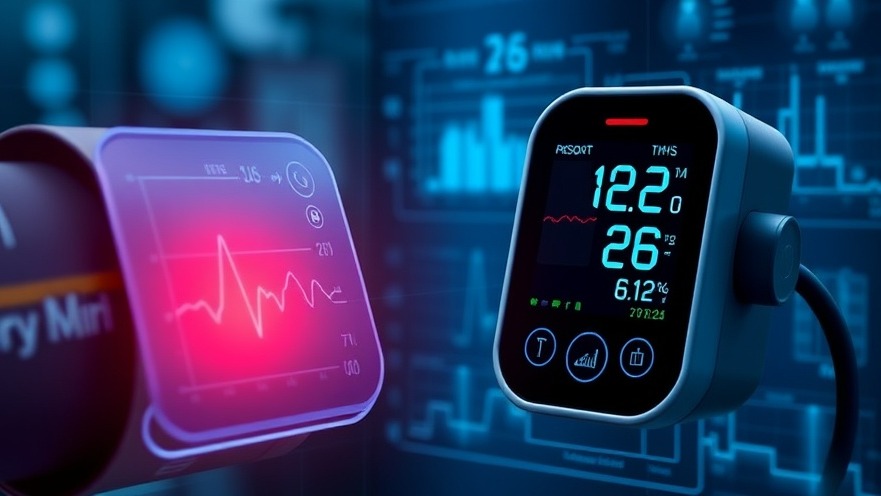
Revolutionizing Intracranial Pressure Monitoring: A Non-Invasive Solution
In a groundbreaking development for critical care and neurology, Brazilian company brain4care has unveiled a revolutionary non-invasive sensor capable of measuring intracranial pressure (ICP) with unprecedented accuracy. This innovative technology, highlighted in a recent study published in npj Digital Medicine, represents a shift toward proactive patient monitoring by utilizing advanced AI to interpret pressure data, providing healthcare professionals with timely insights that were previously unavailable through traditional methods.
The Science Behind the Technology
This novel device operates by attaching a sensor to the patient's head. As the heart beats, the sensor detects minute expansions in the skull, generating a real-time wave that represents changes in both volume and ICP. Unlike conventional ICP monitoring that primarily focuses on numerical readings, brain4care's technology delves deeper, evaluating three critical components: the numerical value, the trend (increasing or decreasing), and the pulse's morphology. This multifaceted approach allows for early detection of ICP changes, enabling doctors to intervene before critical changes occur, potentially saving lives.
Importance of Non-Invasive Methods in Healthcare
Non-invasive monitoring of ICP addresses a significant gap in medical practice, particularly in emergency and intensive care settings. Traditionally, ICP has been measured invasively through methods such as ventricular drainage, which come with inherent risks, including infection and bleeding. The new sensor not only eliminates these hazards but also enhances the ability to monitor ICP in real-time, allowing for better management strategies in critical situations. The implications are extensive—patients requiring neurocritical care can benefit from safer and more effective monitoring methods.
Insights from Peer Institutions and Medical Studies
Collaborative research involving institutions like the University of São Paulo and Emory University has validated the efficacy of this technology. By including the largest patient cohort to date in their assessments, the study concluded that brain4care's solution exhibited the least error in estimating ICP levels compared to existing non-invasive methods.
This builds on earlier research efforts to explore various non-invasive techniques for ICP measurement, including ultrasound and optic nerve sheath diameter evaluations. While many approaches have shown promise, they had not reached the reliability of brain4care's sensor, which boasts an impressive correlation with invasive measurements.
Looking Ahead: Future Trends in ICP Monitoring
The emergence of advanced technologies such as AI and machine learning in medical devices is set to transform how ICP is monitored. Brain4care’s sensor exemplifies this trend by providing more than just data—it offers a comprehensive analysis of the ICP and its varying dynamics. As healthcare professionals become accustomed to these non-invasive methods, the landscape of critical care will likely evolve towards prioritizing patient safety and improved clinical outcomes.
Additionally, with the ongoing exploration of remote and non-traditional healthcare settings, this technology holds potential in emergency and battlefield scenarios where quick assessments are crucial. The ability to monitor ICP without invasive procedures can lead to timely interventions, ultimately benefitting patient survival rates.
Your Role as a Healthcare Practitioner
As a concierge health practitioner, staying informed about advancements like brain4care’s non-invasive ICP technology is paramount. Integrating these innovations into your practice not only enhances your clinical offerings but also positions you at the forefront of healthcare technology. Early adoption of such tools can significantly affect patient outcomes, offering a distinct advantage in patient care.
In this rapidly advancing medical landscape, understanding the capabilities of emerging technologies will empower you to make informed decisions and recommendations based on evidence. Embrace the change and prepare to incorporate groundbreaking solutions into your practice to improve patient care.
As we navigate the future of healthcare with technologies like brain4care, it is essential to consider how these advancements can influence clinical practices and patient experiences. Engaging with professional networks to discuss and share insights about such innovations will further expedite their acceptance and implementation in everyday patient care.
 Add Row
Add Row  Add
Add 






Write A Comment